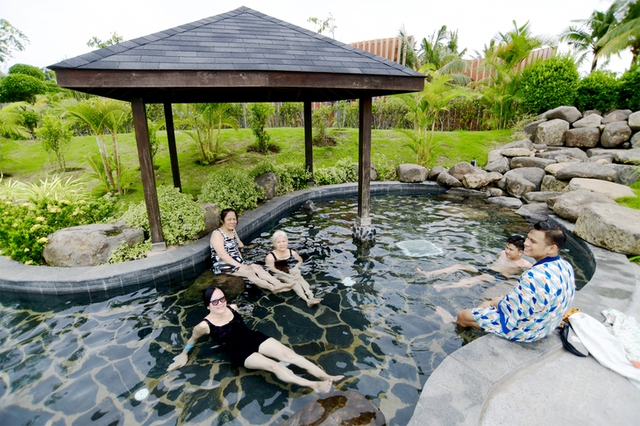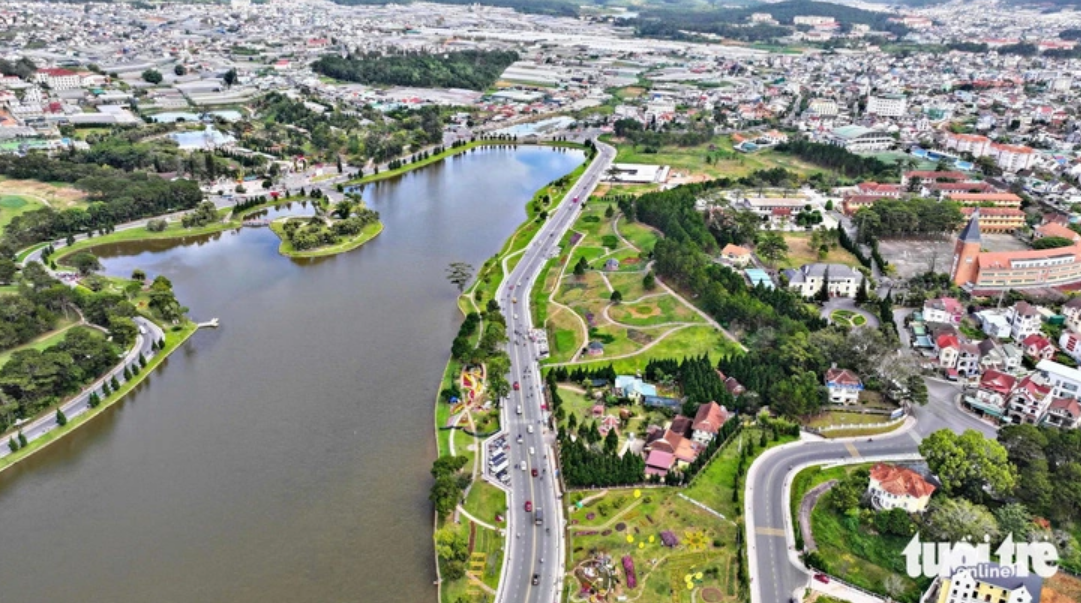
Wellness tourism offers new opportunities to Vietnam, a country rich in natural resources, cultural heritage, and traditional medicine. Photo: Quang Dinh / Tuoi Tre
Wellness tourism, which blends travel with physical care, mental relaxation, and energy renewal, is attracting more travelers worldwide.
For Vietnam, the appeal lies in its long coastline of more than 3,000 kilometers, hundreds of hot springs, abundant medicinal herbs, and deep-rooted traditional healing practices.
These assets could support a wide range of services, from herbal therapy, yoga, and meditation to high-end resorts.
Popular destinations like Da Nang, Hoi An, Nha Trang, and Phu Quoc, already recognized internationally for their scenery and luxury resorts, are seen as 'gold mines' for wellness tourism if properly developed.
However, most services remain limited to spa treatments at resorts or basic therapy packages, lacking specialized products that can compete with leaders such as Thailand, Japan, or South Korea.
Current limitations
Many resorts have invested in facilities but fail to integrate medical expertise or traditional medicine into wellness packages.
Consumer behavior also poses challenges, as lots of Vietnamese still associate tourism with leisure rather than healthcare, making them less willing to pay for wellness services.
Human resources are another bottleneck.
Vietnam lacks internationally certified therapists, doctors, and wellness professionals.
In addition, digital infrastructure, which is key to creating personalized and seamless customer experiences, remains uneven.
Building national wellness brand
To turn potential into competitiveness, Vietnam’s tourism industry needs a comprehensive strategy.
Firstly, the country needs to define a national wellness tourism brand instead of pursuing scattered efforts.
Regional identities could be highlighted, such as yoga and meditation in the Central Highlands, hot spring spa retreats in the north, and coastal resorts with nutritional therapies in the central and southern regions.
Secondly, closer links between healthcare and tourism are crucial.
Hospitals and traditional medicine institutes could partner with resorts to offer combined check-ups, treatment, and retreat packages, which would both raise service quality and build trust among international clients.
Thirdly, investment in human resources is essential.
Professional training and international certification for wellness staff will be key to competing globally.
Finally, government support will play a pivotal role, from offering investment incentives and promoting a national brand to creating quality standards for wellness tourism.
Economic, cultural value
Wellness tourism is not only a revenue stream but also a tool to elevate Vietnam’s national image, extend tourist stays, and increase spending.
It creates local jobs and stimulates related industries, from medicine and herbal farming to food and technology.
More importantly, it provides an opportunity to bring traditional Vietnamese values such as herbal medicine, meditation, and mindful nutrition to the world, establishing a unique cultural identity.
Missed opportunities, digital push
Figures from the Vietnam National Authority of Tourism highlight the potential of wellness tourism.
Prior to the pandemic, approximately 350,000 international visitors came to Vietnam for combined treatment and leisure, spending an estimated US$2 billion in 2018.
At the same time, tens of thousands of Vietnamese traveled abroad each year for medical tourism, spending billions of dollars overseas.
Ho Chi Minh City, with 129 hospitals and leading medical facilities, has yet to fully exploit its potential in this field.
Industry experts believe that digital transformation could provide the boost needed.
Tools such as big data, artificial intelligence, and Internet of Things can allow real-time health monitoring and personalized care, while virtual reality can let customers 'test' treatments before their booking.
If harnessed effectively, these innovations could help Vietnam close the gap with regional competitors and position itself as a serious player in wellness markets.




Max: 1500 characters
There are no comments yet. Be the first to comment.